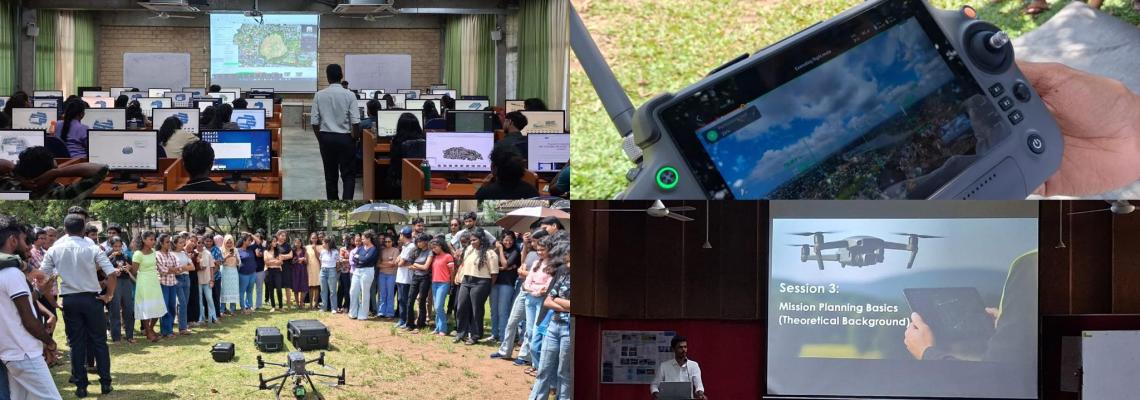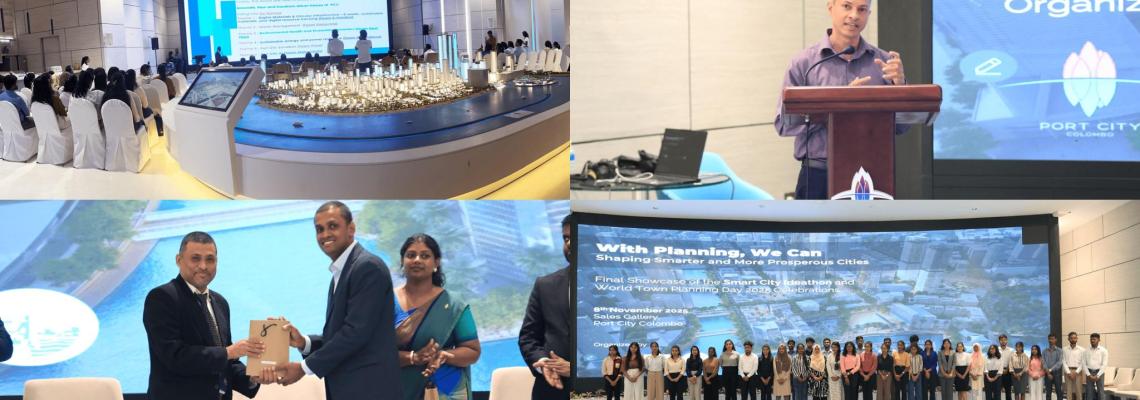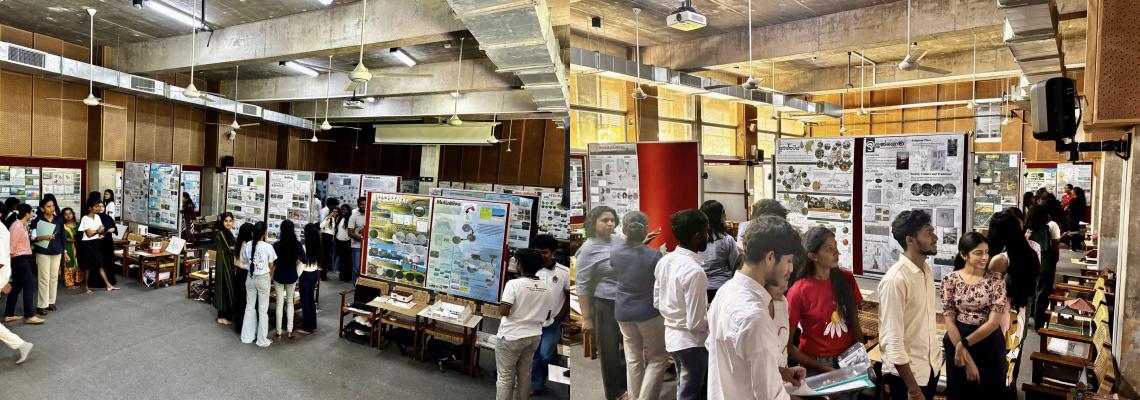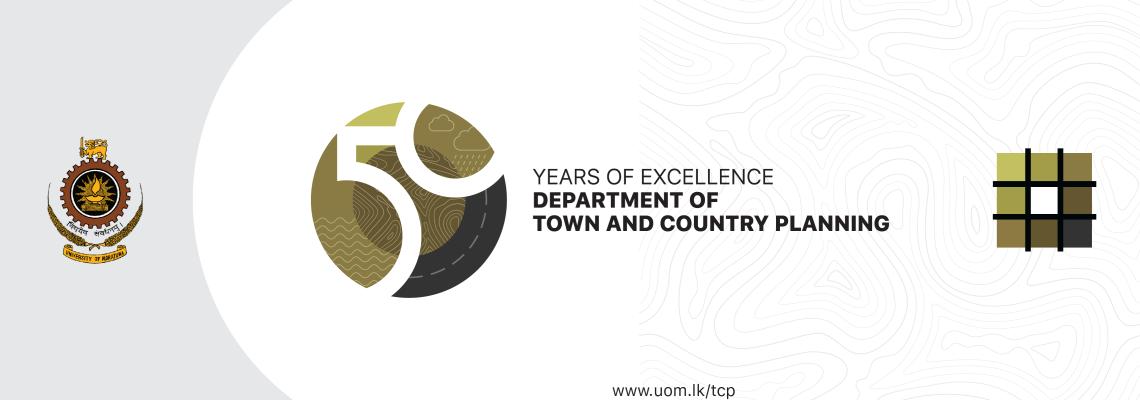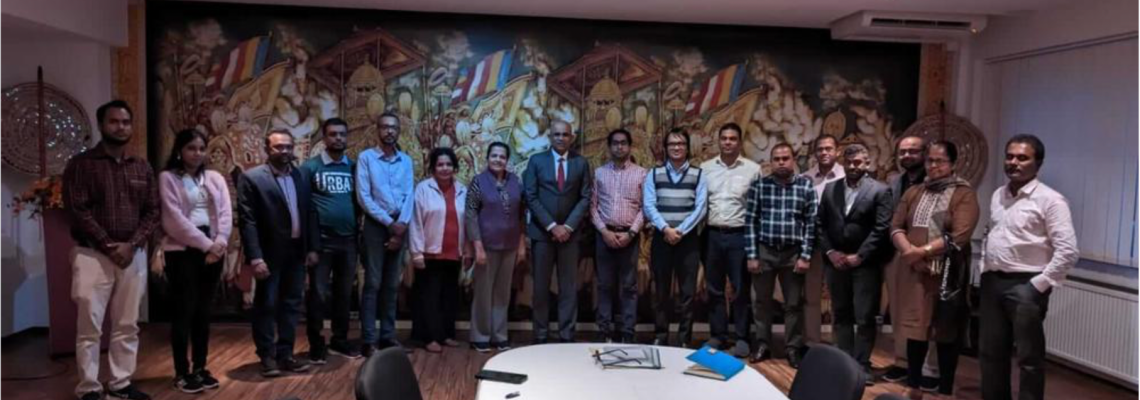INDUSTRIAL TRAINING PROGRAM AT DEPARTMENT OF TOWN & COUNTRY PLANNING
 Industrial training is one of the core modules offered to undergraduate students during level 4 Semester 7. The module contains 4 credits with Non-Grade Point Average (NGPA) and students are required to complete a minimum of 16 weeks (04 months) of training at a planning related agency on a full-time basis.
Industrial training is one of the core modules offered to undergraduate students during level 4 Semester 7. The module contains 4 credits with Non-Grade Point Average (NGPA) and students are required to complete a minimum of 16 weeks (04 months) of training at a planning related agency on a full-time basis.
The main aims expected from industrial training module are to get an exposure for students to the working environments in planning related agencies and to allow students to participate in practical applications of the knowledge gained in planning related work. The learning outcomes expected from the students from the module are:
- Apply knowledge with the other professionals involved in the industry.
- Appraise office procedures, work environments and work ethics in planning and related agencies.
- Involve in both office and field work to understand stakeholder perceptions and get exposed to real ground problem solving activities
- Improve individual decision-making skills and professional interpersonal skills
Industrial training module is handled by industrial coordinator in the Department of Town & Country Planning. Training competencies specify the type of training recommended and the level to which undergraduates could expect to be trained under ideal situations. Specific areas to be covered by a trainee during his/ her training period are as follows.
- Preliminary data collection and analysis exercises, using different techniques and computer aided software.
- Plan / Project Planning and Designing
- Involve with planning related preliminary studies on such as EIA, SEA, SIA, PFS, FS, etc.
- Plan Implementation
- Monitoring and Evaluation process
- Project Management and Financial Assessment related activities in planning
- Legal Procedures of the Plan Preparation and Implementation
- Office Procedures and Protocols
Trainees are expected to cover aforesaid areas to fulfill the comprehensive industrial training experience within the stipulated timeline. Training agencies form variety of disciplines to engage students in field work, office work, research, and variety of stakeholder consultations to gain maximum benefits from the program. The agencies include government agencies, private sector agencies, research institutions and non-governmental agencies including the following:
- Urban Development Authority
- National Physical Planning Department
- National Building Research Organization
- Coast Conservation & Coastal Resources Management Department
- Sri Lanka Tourism Development Authority
- Disaster Management Center
- Sri Lanka Rainwater Harvesting Forum
- Mahaweli Development Authority
- Land Use Policy Planning Department
- Urban Settlement Development Authority
- Central Environmental Authority
- Center for Defense Research and Development
- Board of Investment
- John Keells Holdings Pvt. Ltd.
- GreenTech Consultants Pvt. Ltd.
- UN-Habitat
- International Water Management Institute
- EML Consultants Pvt. Ltd.
- Advantis Projects & Engineering Pvt. Ltd.
- World Vision Lanka
- Sevanatha
Industrial training opportunities have created the undergraduate students to transform their career aspirations and frame the future life goals to follow the path of a professional upon graduation. The opportunities are available for those performed well in their training period to undertake prestigious positions in the respective agencies upon graduation. The alumni employed at variety of agencies both in Sri Lanka and overseas are the evidence for their success in the industrial training program.



